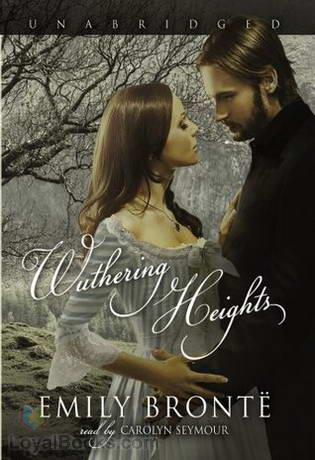In just five minutes, most people can name at least one movie they've seen or book they've read that featured two young lovers who fell under each other's spell despite the fact that their families are mortal enemies. Shakespeare made this sort of ill-fated romance famous in Romeo and Juliet, and now it's a convenient device for any writer who wants to create romantic tension. Certain plots come around again and again, because they're just too good to enjoy just once. But sometimes, authors decide to re-vamp entire books decades after the fact, copying plot lines, characters, setting and circumstance for brand-new audiences. The second time around, I found out I still don't like Wuthering Heights.
The Original
First printed in 1847 and written by Emily Bronte, Wuthering Heights was not an instant success. Emily was but one of the ill-fated Bronte sisters, all of whom were writers and each of which would die young. Her sister Charlotte had published a book the year before, Jane Eyre, and it was a big success in contemporary circles. Anne Bronte released her book, Agnes Grey, in the same year Emily saw her work published.
Both books would overshadow Emily's work for her entire short life, which lasted for a little bit less than one year after Wuthering Heights was first printed. It was not appreciated by critics, and received mixed and very tepid reviews. She did not leave to see her book become the most wildly popular of the three, and an enduring classic that school children are forced to read in English classes the world over.
It has been adapted for the big screen a whopping 15 times, it's been made into three different operas, it's inspired other authors and poets to write their own original works. And it's been at least two different full-length novels...counting the original, of course.
And boy, it is morose. Wuthering Heights itself is a spooky, strange, sad house on the moor (that's kind of like a swamp, with less water). A moody man storms around the house all day, which seems to be haunted by a woman named Catherine. Once all of this is revealed, the reader is transported back to the life of young Heathcliff, the tale's hero. He falls in love with Catherine, the daughter of the man who took him in when he was a young, homeless boy. There is instant rivalry between Heathcliff and the firstborn son, Hindley. Once the old man dies and Hindley is the master of Wuthering Heights, he decides to take all the long, frustrating years of hatred out on Heathcliff.
Now that the stage is set, as you can imagine much heartache and tragedy follows. Clearly Catherine cannot marry Heathcliff; she's the daughter of a wealthy man and he's a nobody. She falls in with the rich neighbors, and their equally rich son, while Heathcliff sets out to make his way in the world (i.e. gather a fortune). Nothing works out well for any of these characters, though there may be some hope for their children.
And if you're not interested in long-winded descriptions about the howling wind of the moor or somewhat archaic-sounding language, you don't have to read Wuthering Heights. You can always read Alice Hoffman's much more modern version instead.
The Re-Vamp
Here on Earth, published in 1997, takes place in Massachusetts (which has weather a bit like what you'll find in England) and mirrors Wuthering Heights quite well considering the 150 year age gap.
The setup is basically the same: wealthy family of means takes in a young orphaned boy, who immediately befriends and loves the daughter of the generous man who adopted him. He is immediately at odds with the man's son, and of course he eventually leaves the family home to go out and make a fortune. March, the story's heroine, finally gets tired of waiting for him and marries the wealthy boy next door. Sound familiar?
Despite the changed setting, character names and time period, Here on Earth doesn't really diverge from Wuthering Heights until the last half of the book. In this version of the story, Catherine (March) remains alive and she ends up returning to her childhood home...and this time, her Heathcliff is there. He married the daughter of the rich neighbors, just like in Wuthering Heights, and he's still bitter and angry because he didn't get what he wanted. But this time around, he's even more broody and much more evil than Bronte's hero.
Personally, I'm not a fan of the plot or the characters in either version -- it's why I can say with certainty I definitely don't like Wuthering Heights. Broody love just isn't my deal, and I know that for a fact. I gave the book a fair shot twice over, and I am one of the few who is not a Bronte fan. The second time around, Wuthering Heights is still depressing and soaked in tragedy...and somehow, I feel that Emily Bronte would definitely approve.













0 comments:
Post a Comment